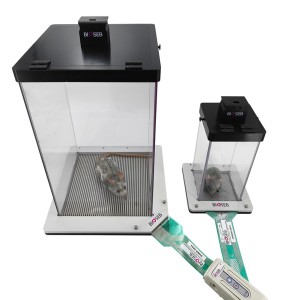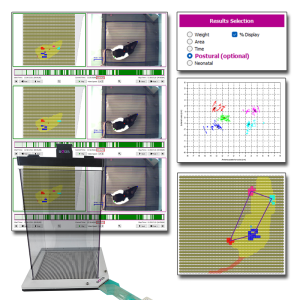Authors
M Yamamoto, E Motomura, R Yanagisawa, et al
Lab
Integrated Physiology Section, Department of Basic Medical Science, National Institute for Minamata Disease, Kumamoto, Japan
Journal
Journal of Applied Toxicology
Abstract
Methylmercury (MeHg) is known to cause neurobehavioral impairment in human and experimental animals. We previously reported that MeHg (5 mg Hg/kg) induced severe neurobehavioral dysfunction in 4_week_old KK_Ay mice, although it is difficult to evaluate quantitatively the neurobehavioral impairment in MeHg_treated KK_Ay mice because of their obesity. The aim of this study was to evaluate MeHg_induced neurobehavioral dysfunction in KK_Ay mice using the dynamic weight_bearing test, which analyzes the animal's weight distribution between the four limbs. Male 12_week_old KK_Ay mice were treated with MeHg (5 mg Hg/kg) three times per week for 5Êweeks. Body weight loss began after approximately 2Êweeks of MeHg treatment, and decreased significantly at 4Êweeks. Seven of the nine MeHg_treated mice exhibited overt neurological symptoms such as ataxia and gait disturbance. The weight_bearing load was lower for the forelimb than for the hindlimb at baseline and until 1Êweek after MeHg treatment was initiated. In weeks 2_4, the dynamic weight_bearing loads on the forelimb and hindlimb were similar. The load on the forelimb exceeded the load on the hindlimb after 5Êweeks of treatment. This finding indicates that the dynamic weight_bearing test is useful for semi_quantitative evaluation of neurobehavioral impairment in MeHg_treated rodents, and is less stressful for the animals. Infiltration of CD204_positive macrophages was observed in the sciatic nerve of MeHg_treated mice, suggesting that CD204 can serve as a useful marker of tissue injury in peripheral nerves and a possible target in regenerating peripheral nerves and controlling neuropathies.
BIOSEB Instruments Used
Dynamic Weight Bearing 2.0 (BIO-DWB-DUAL)
Keywords/Topics
Toxicology; Cross-disciplinary subjects
Source :

 Pain - Thermal Allodynia / Hyperalgesia
Pain - Thermal Allodynia / Hyperalgesia Pain - Spontaneous Pain - Postural Deficit
Pain - Spontaneous Pain - Postural Deficit Pain - Mechanical Allodynia / Hyperalgesia
Pain - Mechanical Allodynia / Hyperalgesia Learning/Memory - Attention - Addiction
Learning/Memory - Attention - Addiction Physiology & Respiratory Research
Physiology & Respiratory Research











![Dynamic Weight Bearing 2.0 – Postural Module [Add-on]](https://bioseb.com/733-home_default/dynamic-weight-bearing-20-add-on-postural-module.jpg)
























 Pain
Pain Central Nervous System (CNS)
Central Nervous System (CNS) Neurodegeneration
Neurodegeneration Sensory system
Sensory system Motor control
Motor control Mood Disorders
Mood Disorders Other disorders
Other disorders Muscular system
Muscular system Joints
Joints Metabolism
Metabolism Cross-disciplinary subjects
Cross-disciplinary subjects CONFERENCES & MEETINGS
CONFERENCES & MEETINGS 
